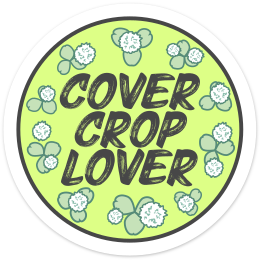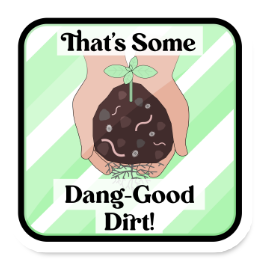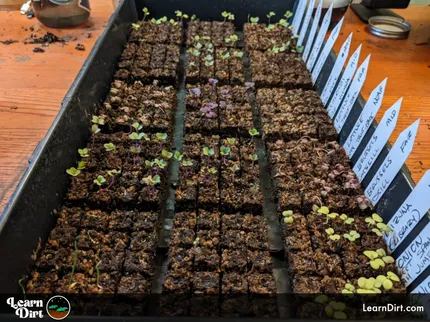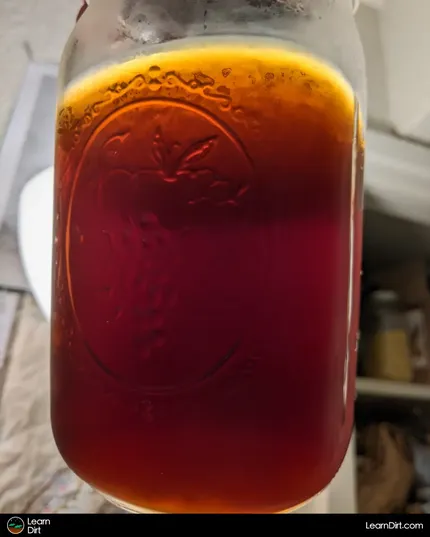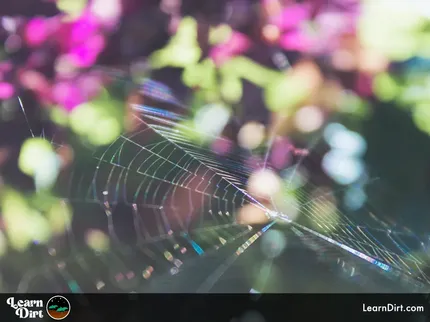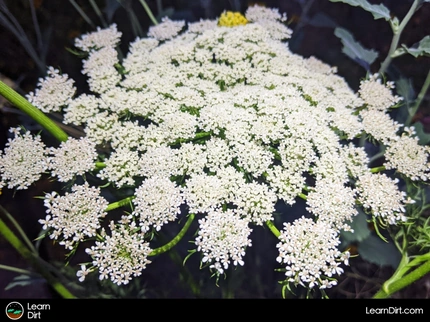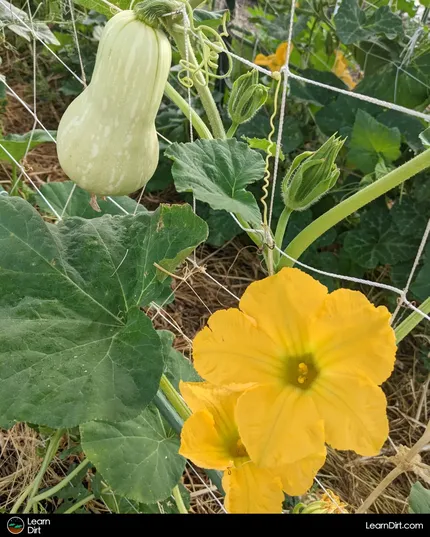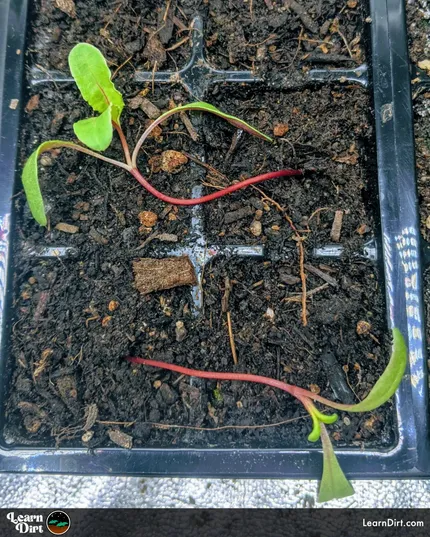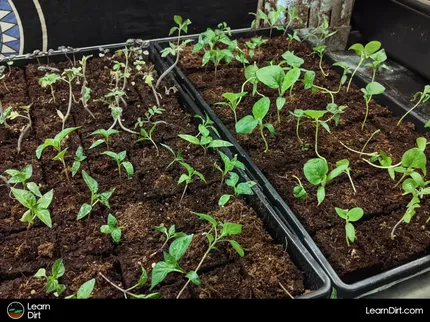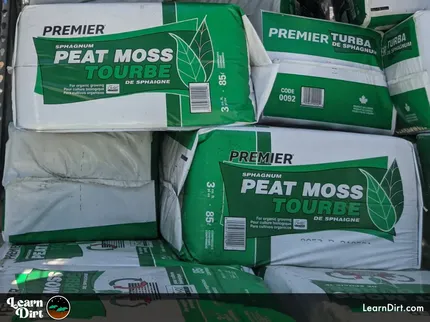Table of Contents
- What's Compost?
- What's Soil?
- Compost vs. Soil
- Soil Texture vs. Compost Texture
- Should I Add Compost or Soil to My Garden?
- Wait, What's Dirt?
- Neat, Let's Wrap Up!
* Our articles never contain AI-generated slop *
This is a common question because of the confusion between compost and soil. Both are used in gardening and agriculture, so what's the deal? When would you use one or the other, and what's the difference between compost and soil?
While these terms are sometimes used interchangeably, they're not exact synonyms. There are some important distinctions that we're going to discuss here. So let's dig into it!
What's Compost?
You can think of compost as a precursor to soil.
Disclaimer: This post may contain affiliate links. Refer to the privacy policy for more information.
If you gather a bunch of organic material, mix it into a pile, and water it - it will break down into compost.
This may include, but is not limited to:
- leaves
- yard waste
- grass clippings
- wood chips
- food scraps
- coffee grounds & chaff
- tea leaves
- shredded paper
- shredded cardboard
- disease-free plant material
- unripe or spoiled veggies
- etc.
When mixed together, paying attention to recommended Carbon-to-Nitrogen ratios, watered, and (optionally) turned a few times - you get compost.
Compost is absolutely full of nutrients, and can be added to soil to improve quality.
It can be used as a component for seed-starting mix.
Additionally, compost can also be brewed into compost tea, an incredible fertilizer.
Join The Grower's Community
Looking for a place to meet growers,
ask questions, share knowledge, be heard,
and feel like you belong? 🌱
Check It Out!
It's important to note that compost tends to be "hotter" (nutritionally stronger) than soil, meaning it is more biologically active. This can be beneficial for plants, but it also means that compost can be harsh on plant roots.
Too much compost may "burn" plants. This is commonly referred to as nutrient burn or toxicity. Compost in high ratios can be especially harsh on seedlings. For this reason you'll want to exercise some caution and dilute your compost - especially when used for younger, more sensitive plants.
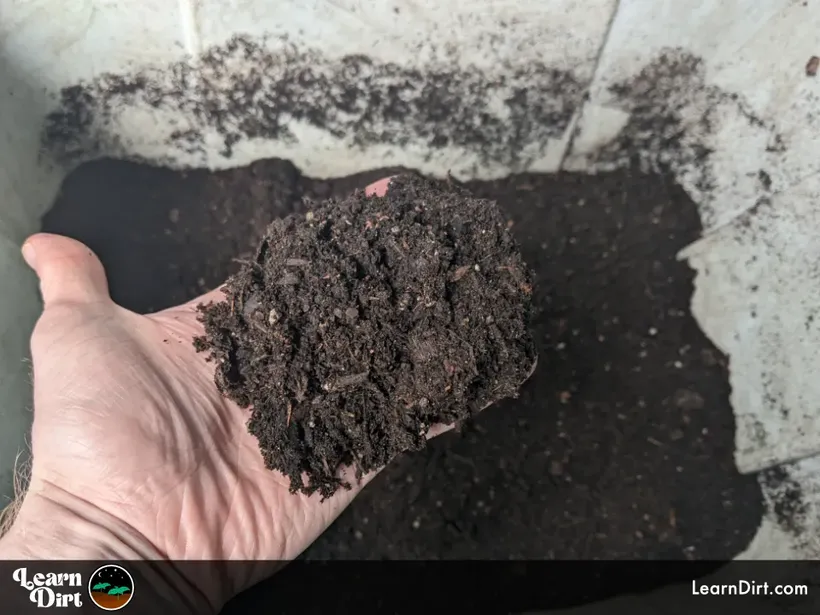
What's Soil?
You can think of soil as compost which has broken down further, and also contains some inorganic minerals.
Soil is the natural medium that plants grow, and provides them the nutrients, structure, moisture, and symbiotic connections required for them to thrive.
Generally speaking, the organic matter in soil is tempered by the inorganic minerals, which makes soil less-likely than pure compost to give plants nutrient burn. We could say that soil is "cooler" than compost from a nutrient perspective, and instances of toxicity will be lower in soil than attempting to plant directly in compost.
Because the nutrients are more broken-down in soil than compost, and are also tempered with more minerals, the bioactivity in soil tends to be lower than in the compost pile.
If you're curious about what can go wrong if you try planting directly into compost, check out this cucumber experiment I did to illustrate.
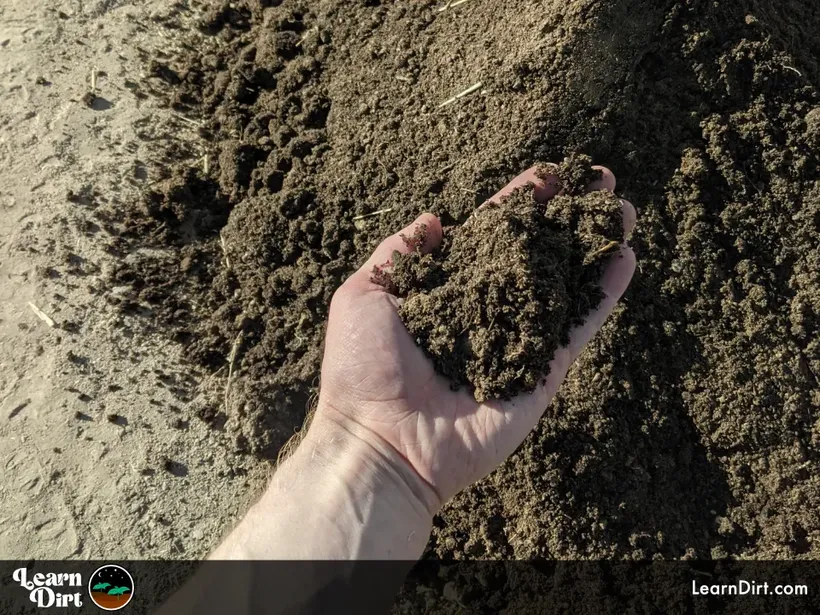
Note the improved quality compared to the native sand,
but also the lack of quality compared to the previous photo of compost.
Compost vs. Soil
The level of biological activity demarcates one of the major divisions between compost and soil.
Compost has larger pieces of organic matter which are less broken-down than soil. For this reason, there is more food for the microbiome to work with, and their activity levels are therefore greater than in soil. Microorganisms are hard at work breaking down the organics in compost and releasing nutrients.
Soil has a comparatively stable microbial population. While good soil will still be thriving, dynamic, and completely alive - it's usually not going as crazy as a compost pile is. Growth is more stable and less explosive, because nutrients aren't quite as abundant vs. compost. Don't mistake this for saying soil should not be active, however.
This means that while compost may be better for quick bursts of nutrients, there is also an increased chance of plants suffering nutrient burns and toxicity if compost is not diluted and applied carefully.
Additionally if you water compost as much as you would water soil, it can easily become too biologically active. This might look like explosive insect populations and overly pungent smells.
For this reason it's important to keep compost a little drier than soil to prevent the microbiology from exploding too much.
On the other hand, soil can be watered more because most of it is already broken down and will be slightly less biologically active.
Soil Texture vs. Compost Texture
Another key difference between compost and soil is their texture.
Because compost is organic-heavy and lacking in minerals, grit, sand, and silt - it can be wet and clumpy.
Compost may be extremely spongy, but not drain very well.
Compost can be really chunky, especially if it's unfinished and / or unsifted.
Soil tends to be less chunky, and is often more broken down. It's often more gritty or clay-like than compost, and will have rocks, sand, and other natural inclusions.
Should I Add Compost or Soil to My Garden?
So, which is better for your garden – compost or soil? The truth is, both are important.
Dig Cool Merch?
Compost adds fresh nutrients and can increase the sponginess of soil. It can help increase moisture infiltration rate and retention, and keep soil cooler and wetter.
It's very difficult to grow in compost alone, however, as it lacks necessary drainage and may stay too wet, too clumpy, and the high nutrient levels can easily burn seedlings.
Soil is necessary for providing a stable growing medium for your plants.
As both are crucial to healthy gardens and farms, the key is to utilize them both at the right times and in the right ways!
Wait, What's Dirt?
"Dirt" is what I affectionately call my soil.
To most gardeners, though, dirt is just pretty dang dead soil.
Soil which hasn't been tended, fed, nor watered. Soil which is not thriving (yet).
Where I live in the desert, our native soil is really just dirt. It has less than 1% organic matter content, and is more sand, grit, and silt than it is anything organic. It's super alkaline, and barely holds any moisture. It absolutely sucks for growing anything non-native, so it makes for a great example of "dirt."
Neat, Let's Wrap Up!
While we talked about the differences between the two, it's important to understand how to utilize both soil and compost for a healthy garden.
Know the difference, how to compost, how to build soil, and when and how to utilize each. You'll be able to balance your bioactivity levels, moisture retention vs drainage, and provide the exact right amount of nutrients for your plants to thrive.
Happy growin', y'all!
That's all for now, thanks for reading!
If you have any questions, comments, or would like to connect with fellow gardeners, head on over to the forum and post there.

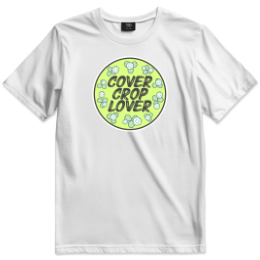
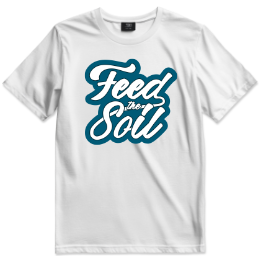
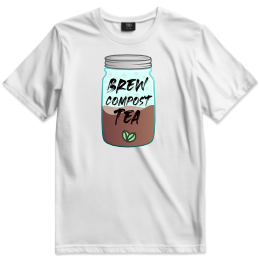

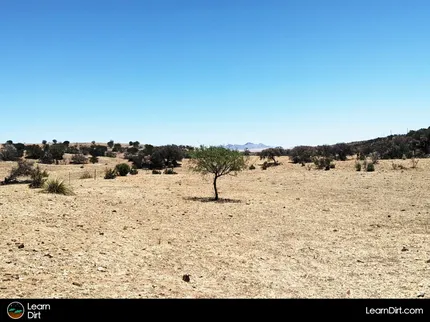
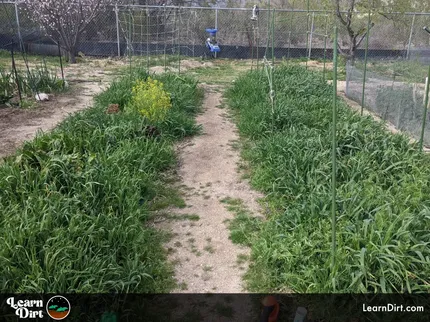
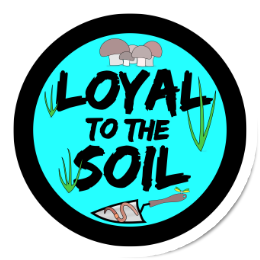
![Don't Till Away Your Carbon [Neon]](/media/product_images/dont-till-away-your-carbon-[neon]_shirt_260x260.png)
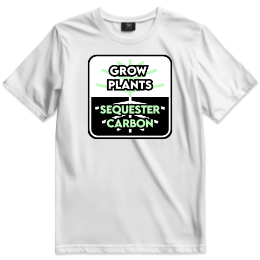
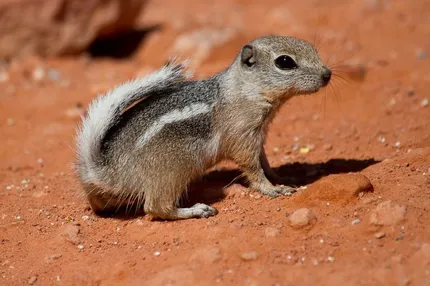
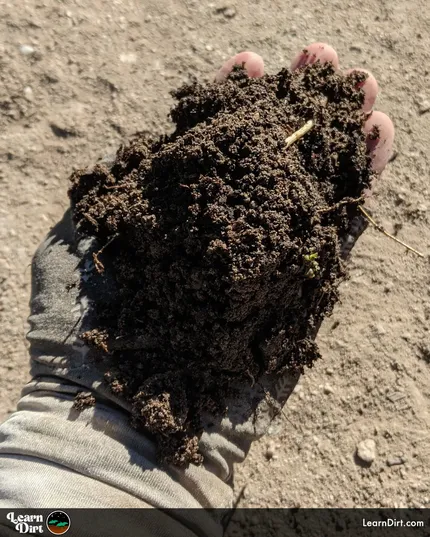
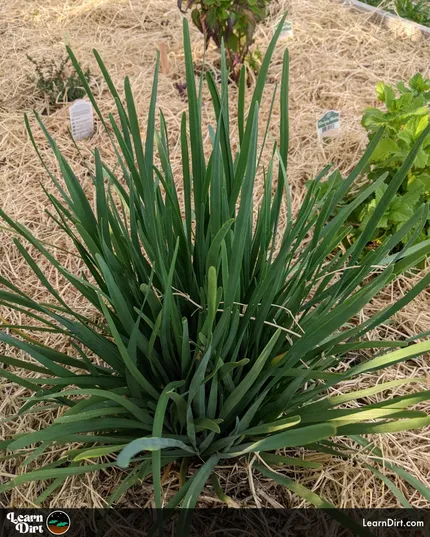
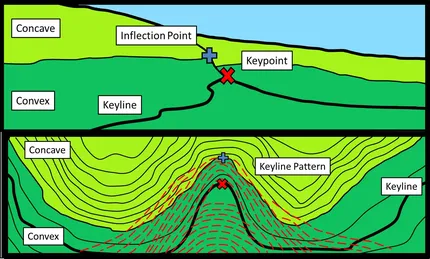
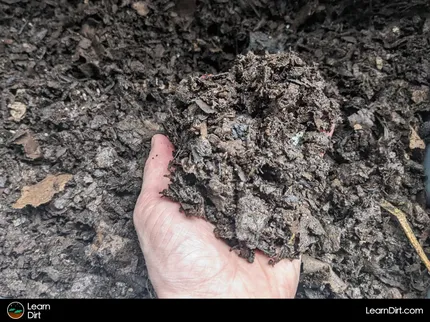
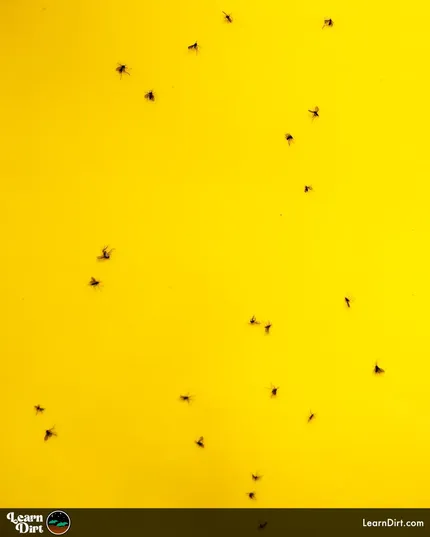
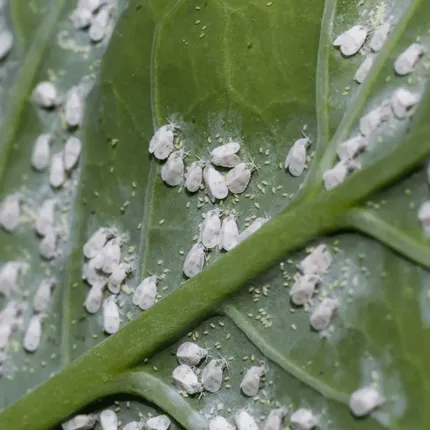
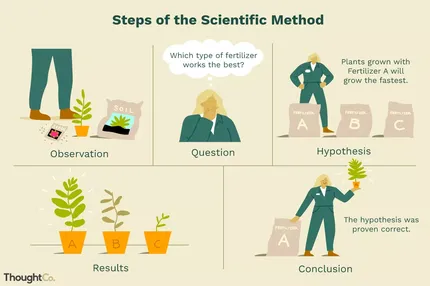
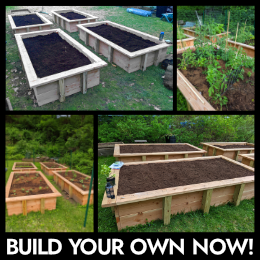
![Don't Till Away Your Carbon [Taffy] Sticker](/media/product_images/dont-till-away-your-carbon-[taffy]_sticker_260x260.png)
